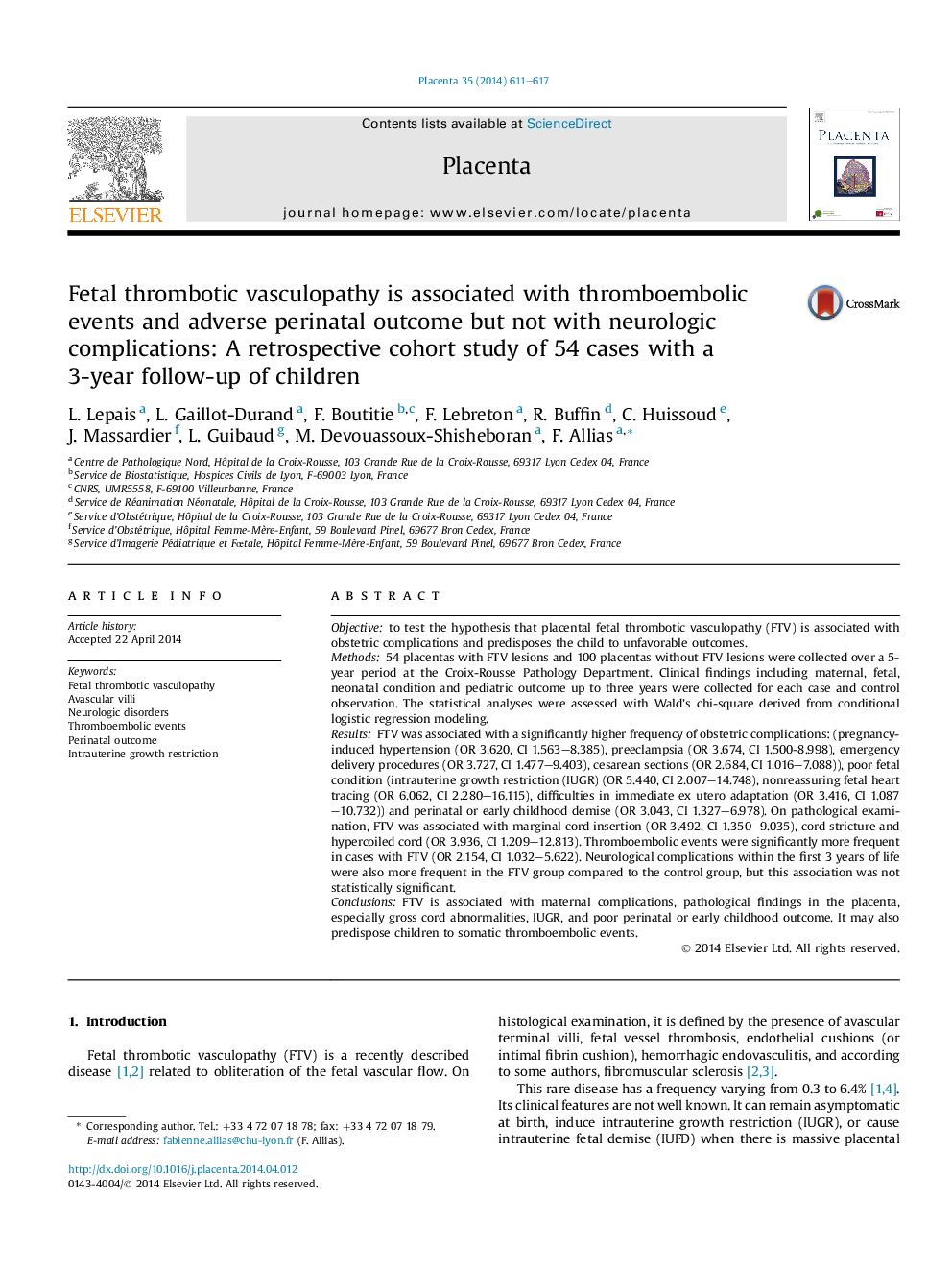| Article ID | Journal | Published Year | Pages | File Type |
|---|---|---|---|---|
| 5895406 | Placenta | 2014 | 7 Pages |
â¢Gross cord abnormalities are increased in the fetal thrombotic vasculopathy group.â¢Fetal thrombotic vasculopathy is associated with poor fetal or neonatal outcome.â¢Fetal thrombotic vasculopathy is associated with thromboembolic events.â¢Neurological complications are not significantly more frequent.
Objectiveto test the hypothesis that placental fetal thrombotic vasculopathy (FTV) is associated with obstetric complications and predisposes the child to unfavorable outcomes.Methods54 placentas with FTV lesions and 100 placentas without FTV lesions were collected over a 5-year period at the Croix-Rousse Pathology Department. Clinical findings including maternal, fetal, neonatal condition and pediatric outcome up to three years were collected for each case and control observation. The statistical analyses were assessed with Wald's chi-square derived from conditional logistic regression modeling.ResultsFTV was associated with a significantly higher frequency of obstetric complications: (pregnancy-induced hypertension (OR 3.620, CI 1.563-8.385), preeclampsia (OR 3.674, CI 1.500-8.998), emergency delivery procedures (OR 3.727, CI 1.477-9.403), cesarean sections (OR 2.684, CI 1.016-7.088)), poor fetal condition (intrauterine growth restriction (IUGR) (OR 5.440, CI 2.007-14.748), nonreassuring fetal heart tracing (OR 6.062, CI 2.280-16.115), difficulties in immediate ex utero adaptation (OR 3.416, CI 1.087-10.732)) and perinatal or early childhood demise (OR 3.043, CI 1.327-6.978). On pathological examination, FTV was associated with marginal cord insertion (OR 3.492, CI 1.350-9.035), cord stricture and hypercoiled cord (OR 3.936, CI 1.209-12.813). Thromboembolic events were significantly more frequent in cases with FTV (OR 2.154, CI 1.032-5.622). Neurological complications within the first 3 years of life were also more frequent in the FTV group compared to the control group, but this association was not statistically significant.ConclusionsFTV is associated with maternal complications, pathological findings in the placenta, especially gross cord abnormalities, IUGR, and poor perinatal or early childhood outcome. It may also predispose children to somatic thromboembolic events.
